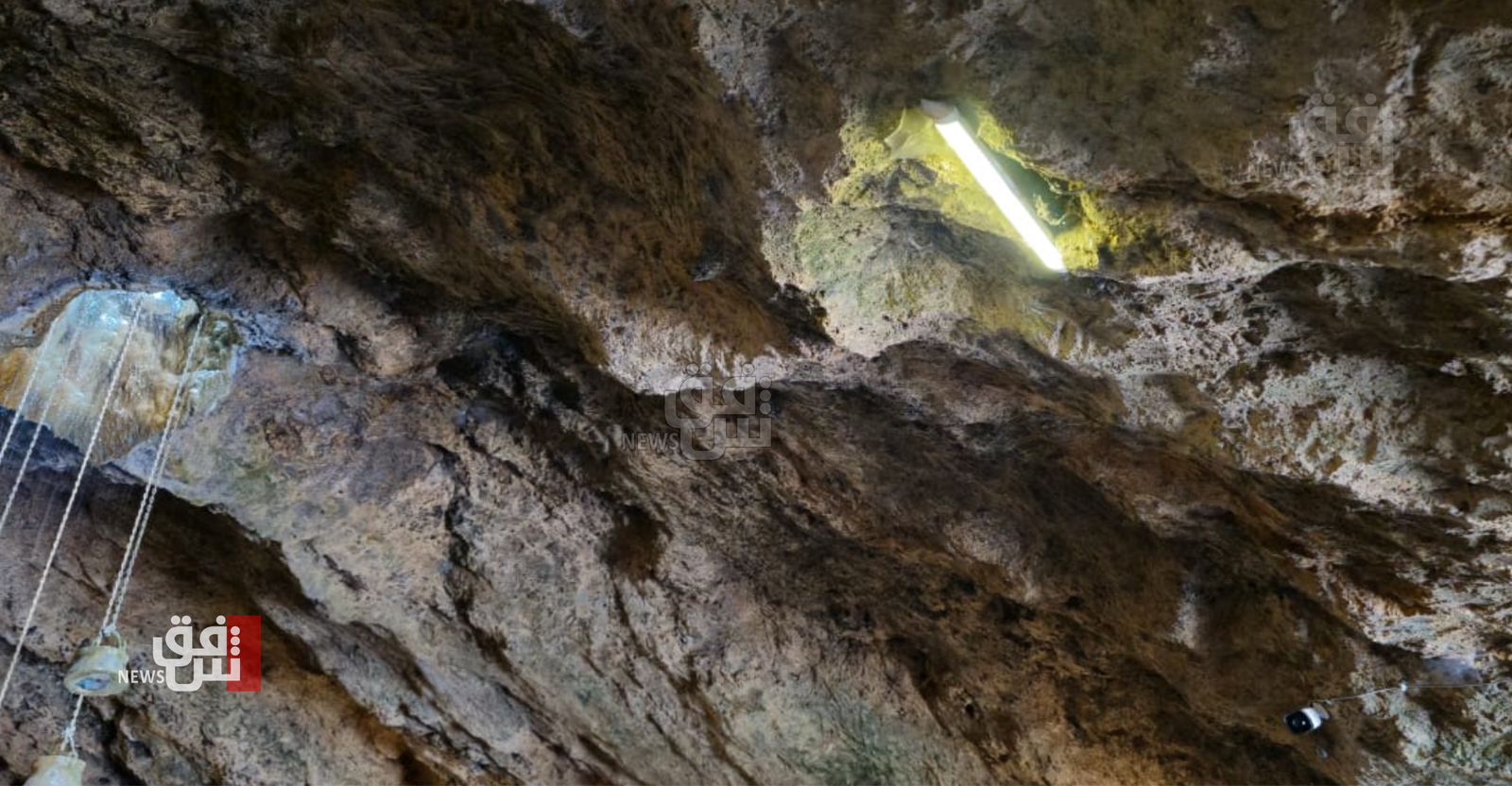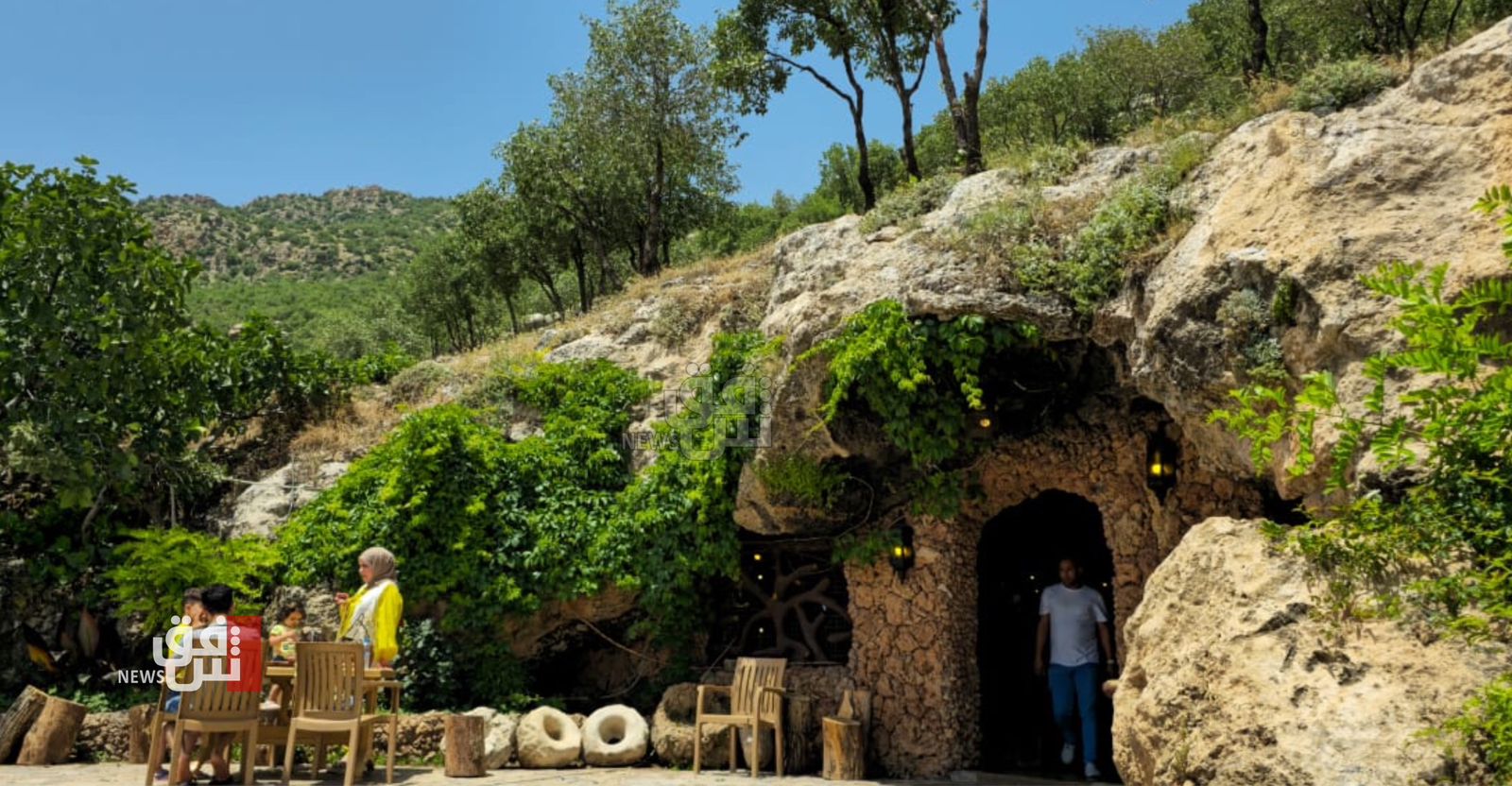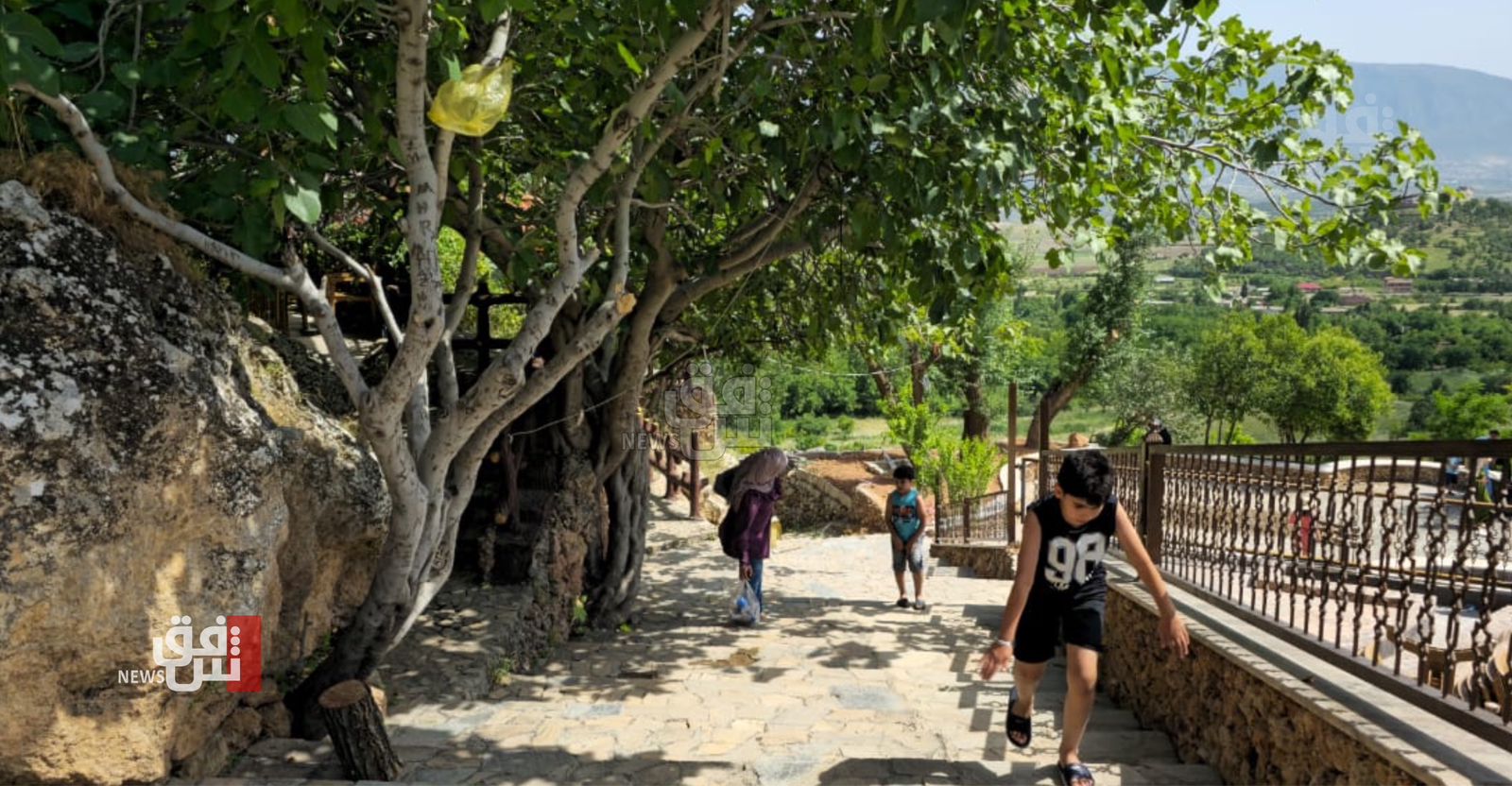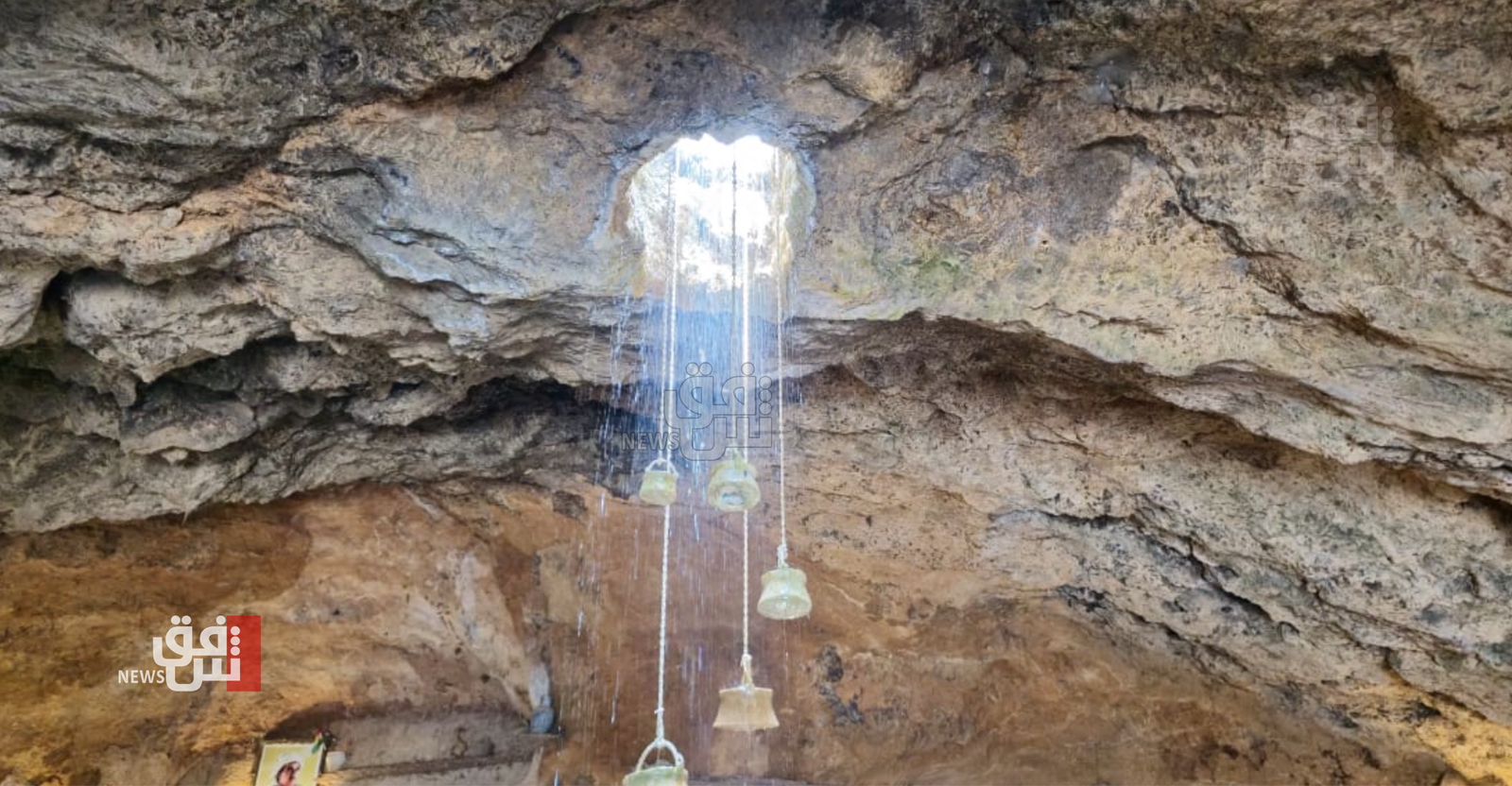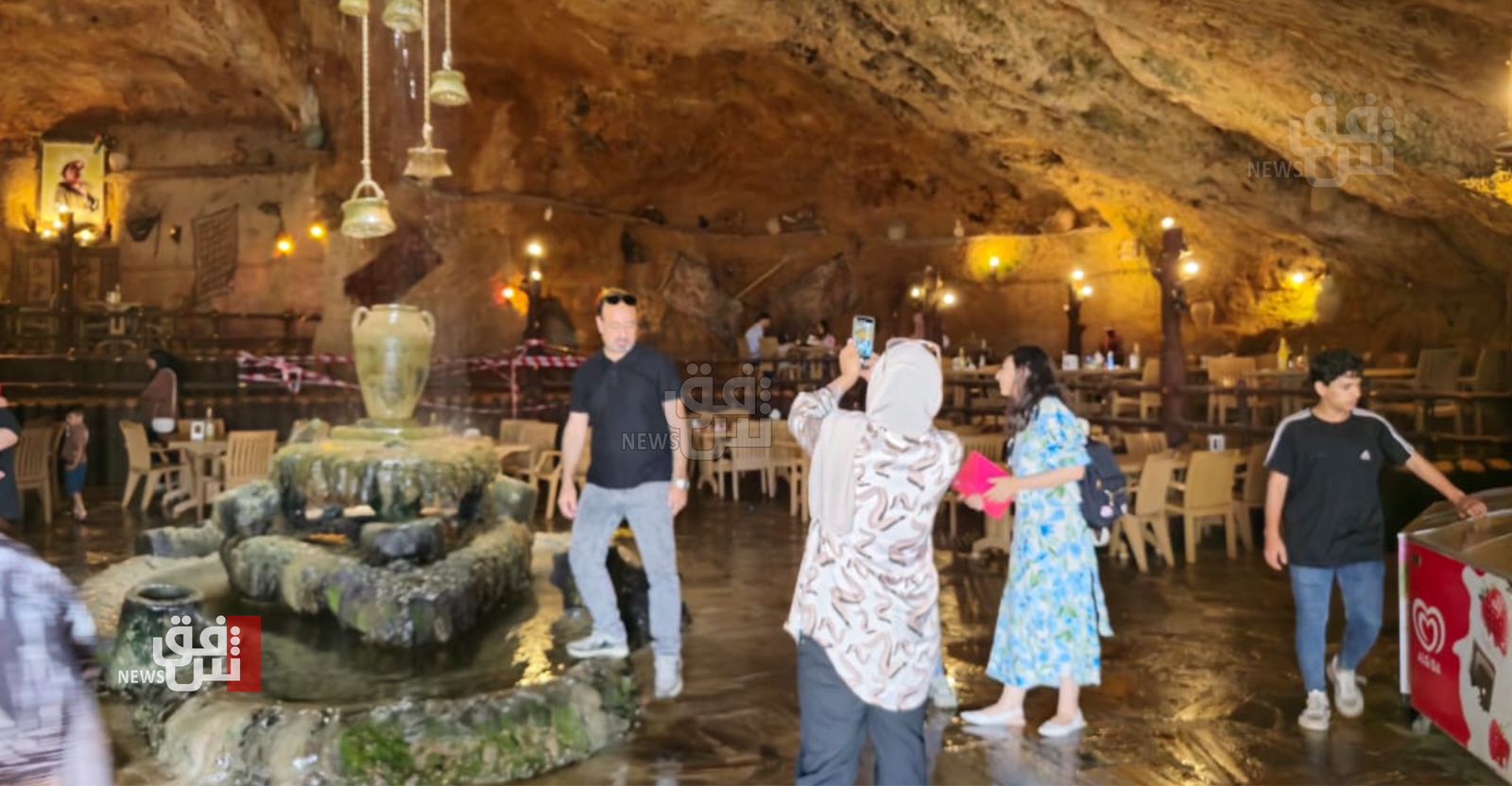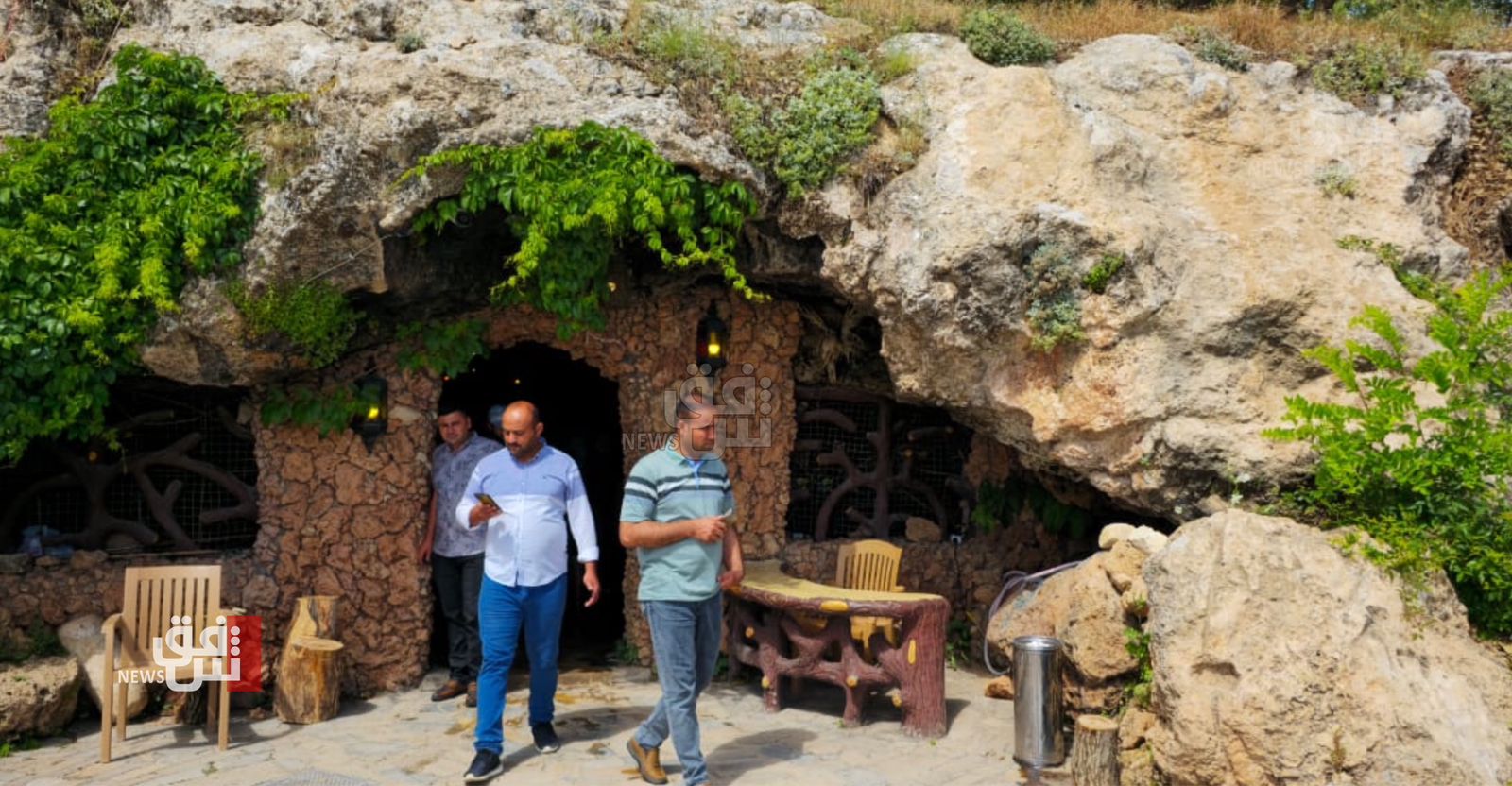Inshki Grotto: a transformation from sanctuary, to hospital, to tourist hub
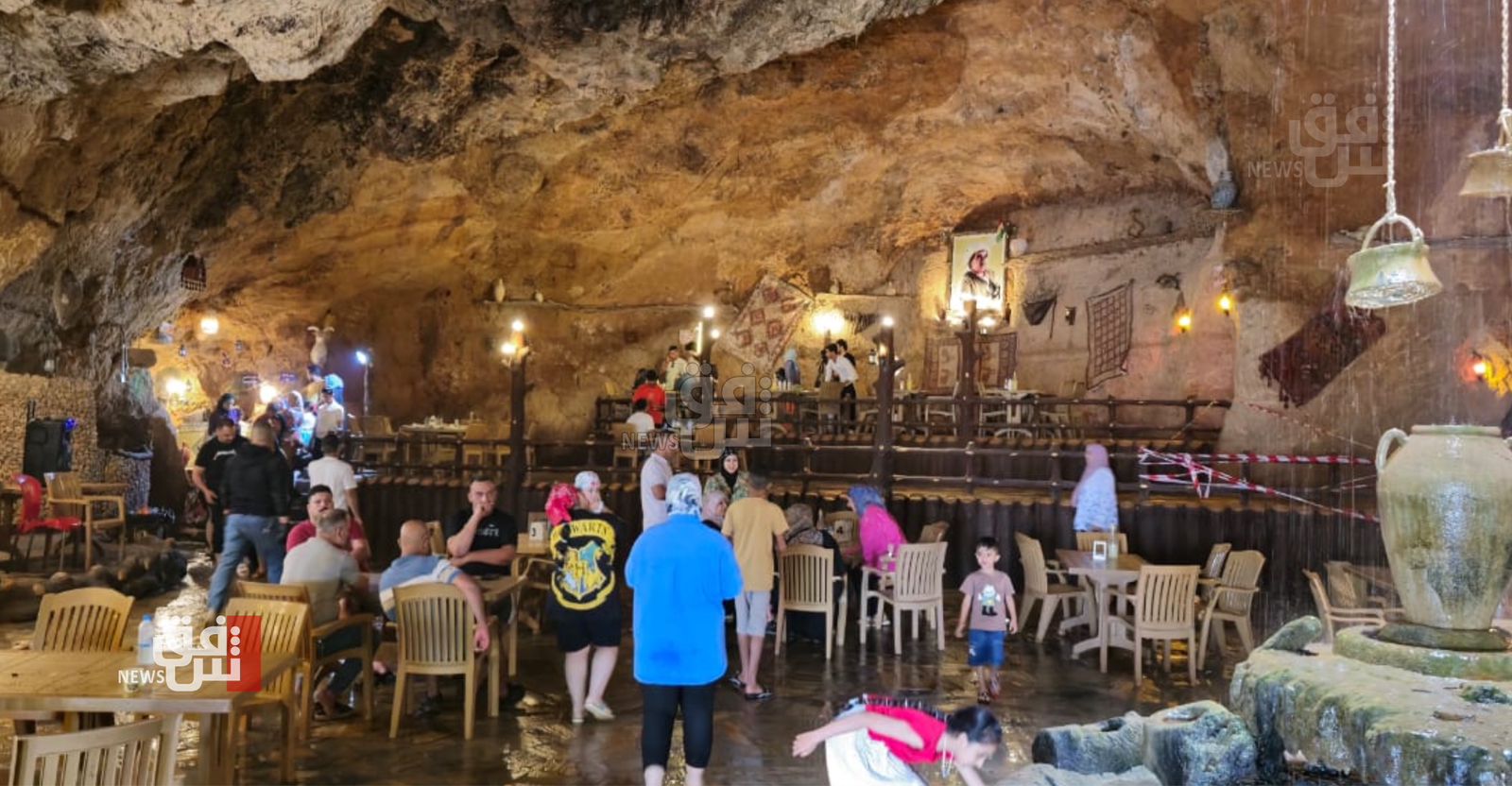
Shafaq News/ Carved into the foothills north of Dohuk, the Inshki Grotto stands as a testament to Iraq's layered history. Once a sacred site for various religions, the vast cavern has morphed into a thriving tourist destination, luring visitors with its unique geology and rich past.
For centuries, the Inshki Cave served as a spiritual sanctuary. Zoroastrians conducted rituals inside the grotto. Later, Christians used it for worship in the 3rd century AD. Later, it offered shelter to Jewish garment makers, leveraging its protected environment for their craft.
In 1973, the cave became a makeshift hospital during the Kurdish struggle for autonomy. In 1978, the Iraqi government transformed it into a tourist site.
"The Inshki Grotto, also known locally as 'Janga Grotto,' boasts a stunning geographic location and a natural freshwater spring," said historian Mohammed Gergoyi.
Gergoyi explained that in the late 1970s, the Iraqi government undertook modifications in the cave to expand it and transform it into a grotto equipped to welcome tourists.
"During these renovations, numerous artifacts and other materials were unearthed. The government established a small museum inside to showcase its history," he added "However, in 1991, these artifacts were subjected to vandalism and theft, depriving the grotto of a significant portion of its historical legacy."
Despite this setback, the Inshki grotto continues to thrive. Jum'a Browary, manager of the grotto's restaurant, is confident that Inshki retains its appeal.
"We offer a variety of local and traditional dishes, attracting thousands of domestic and international tourists each year," he said about the restaurants he runs.
The Inshki Cave Restaurant serves as a microcosm of the cave's transformation. It blends local heritage with a natural wonder, creating a holistic experience for visitors.
Munir Abbas, a visitor from Basrah, echoed this sentiment. "The sight is truly remarkable," he said. "We enjoyed a unique dining experience alongside the local cuisine."
